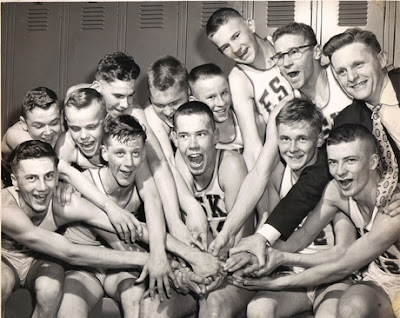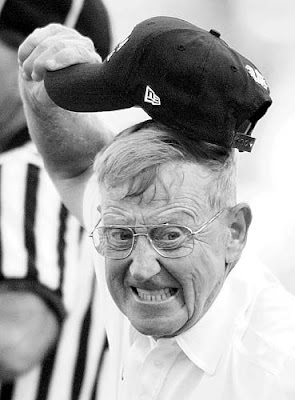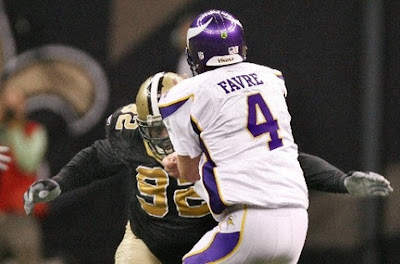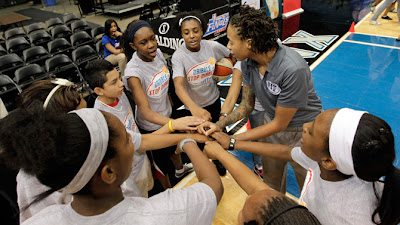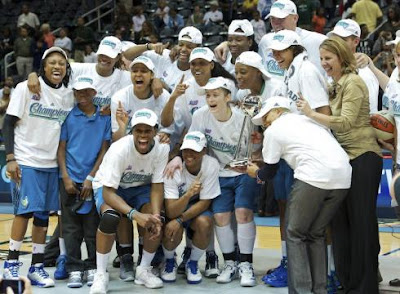Editor’s Note: We are proud to present a guest post from Alex Maki. Alex is a Ph.D. candidate in Psychology at the University of Minnesota. This is his fourth submission to The Diss.
My father loves to tell tales about his years as a star point guard in high school. Growing up in a small town in rural Minnesota, my father was one of those basketball players that could go from hero to goat in the span of a quarter. Before the three-point line was even implemented he was chucking up long shot after long shot, often refusing to pass the ball. Games were won and lost according to whether or not he fell asleep in class before the game at an odd angle on his shooting wrist.
Though his stories of playing sports in Esko (here is the Esko Wikipedia article, in case you have interest; don’t worry, it doesn’t take long to read) generally revolve around his own successes and occasional failures, the second most common theme woven throughout his adventures are the extreme depths to which his coaches were willing to go in order to win. Football coaches teaching players how to grab opposing players’ crotches in the bottoms of piles. Baseball coaches instructing teenagers to take fastballs in the jaw so the team could have a base runner. Basketball coaches informing defenders that the referees’ eyes are rarely watching a jump shooter below the belt, so make sure to get in as many low blows as possible during the game. This was testosterone-fueled competitiveness that placed winning as the highest good, and overall health and happiness as a distant second. Jesse Ventura captured this era of sports best when referring to professional wrestling, “Win if you can, lose if you must, but always cheat.”
Now I love my father dearly, but I cannot help but be taken aback when he recounts these stories with equal parts disbelief at the things coaches and players could get away with back in the day, but also a sort or lament at how sports seem to have taken a different path. As he says, and he is not alone, “there were no flagrant fouls back in the day, only good, hard ones.” Although we can all think of current examples of cheating and egregious violence in sports (e.g., Saintly bounties and the Malice in the Palace), no longer is it the norm for these activities to be openly encouraged or tolerated. And I think this is a good thing. Perhaps the philosopher and psychologist Steven Pinker is right, humans are currently the least violent and aggressive that they have ever been in their history.
And yet, our current sports models still perpetuate a number of harmful lessons within our culture every single day. Unnecessary violence and intimidation are a useful means to an end. Sports are about competition, dominance, and justified humiliation. Concussions are serious, but it is honorable to encourage athletes to play through them and even incentive against the system toward downplaying them (as in the NFL policy to not require independent neurologists at NFL games).
However, these are not the only sports models available. The WNBA, for example, has done a much better job of creating a space where there is a balance between competition and respectful fun. The WNBA has gone out of their way to make LGBT families and individuals welcome (here, as well as the fact that the first ever openly gay professional athlete in the United States was a WNBA player, and the tradition of openness continues). They encourage gender equality and fight against gender norms that make girls and women feel like they have to be cheerleaders to get attention in the sports world. The WNBA also partners with schools to offer at least one basketball game in the middle of a school day where classes can attend together and take in a game. And WNBA players don’t take themselves too seriously. If it had to be one, I know which sports model I would prefer my niece to imitate.
I had the pleasure of seeing the world champion Minnesota Lynx play in a number of terrific home games last season. It is not often that Minnesota sports fans get to say “world champion” and a team from their home state together in the same sentence. My experience at those games was better than I could have hoped for. Here people were friendly to all and yet loyal to their team. I saw gay and lesbian couples that felt comfortable and safe expressing their love in public. I saw daughters with fathers and daughters with mothers. I even got a number of friends to come along with me to games. Friends that never even had interest in coming to a Timberwolves game. Something about the WNBA environment felt welcoming to them. There wasn’t the embarrassment or shame sometimes heaped upon people that fail to remember every single rule or star from a given sport. In total, it feels less like we are there to use their bodies for our own ends. Rather, we are there to take part in their community.
The fact is that life is political. Burying your head in the sand does not change the fact that we support horrible politicians and corporations by the votes we cast through the ballot and the wallet. Supporting the NFL at least indirectly supports the shirking of medical opinion and the downplaying of the severity of concussions. Supporting the NBA means supporting an organization that largely chooses to maintain the status quo of second-class citizenship of LGBT individuals. This is the truth of the situation, whether you face the facts or not.
Sports are an apt replacement for art in the classic Oscar Wilde quote: “Life imitates Art far more than Art imitates life.” Although sports are influenced by the culture in which they take place, they have the potential to impact popular opinion and thought at a level almost unrivaled in our world. The WNBA is an ideal model for how we want our children to act both in their sporting lives and in the rest of their lives. Hell, it is a great model for how we want ourselves to act. Consider supporting the WNBA by checking out a game in person or watching one on television.
Or maybe just the next time someone speaks sexist words at the mention of women’s sports, let them kindly know that the world will soon be a better place once either their outdated opinions or they, themselves, have passed on. Whichever happens first.

